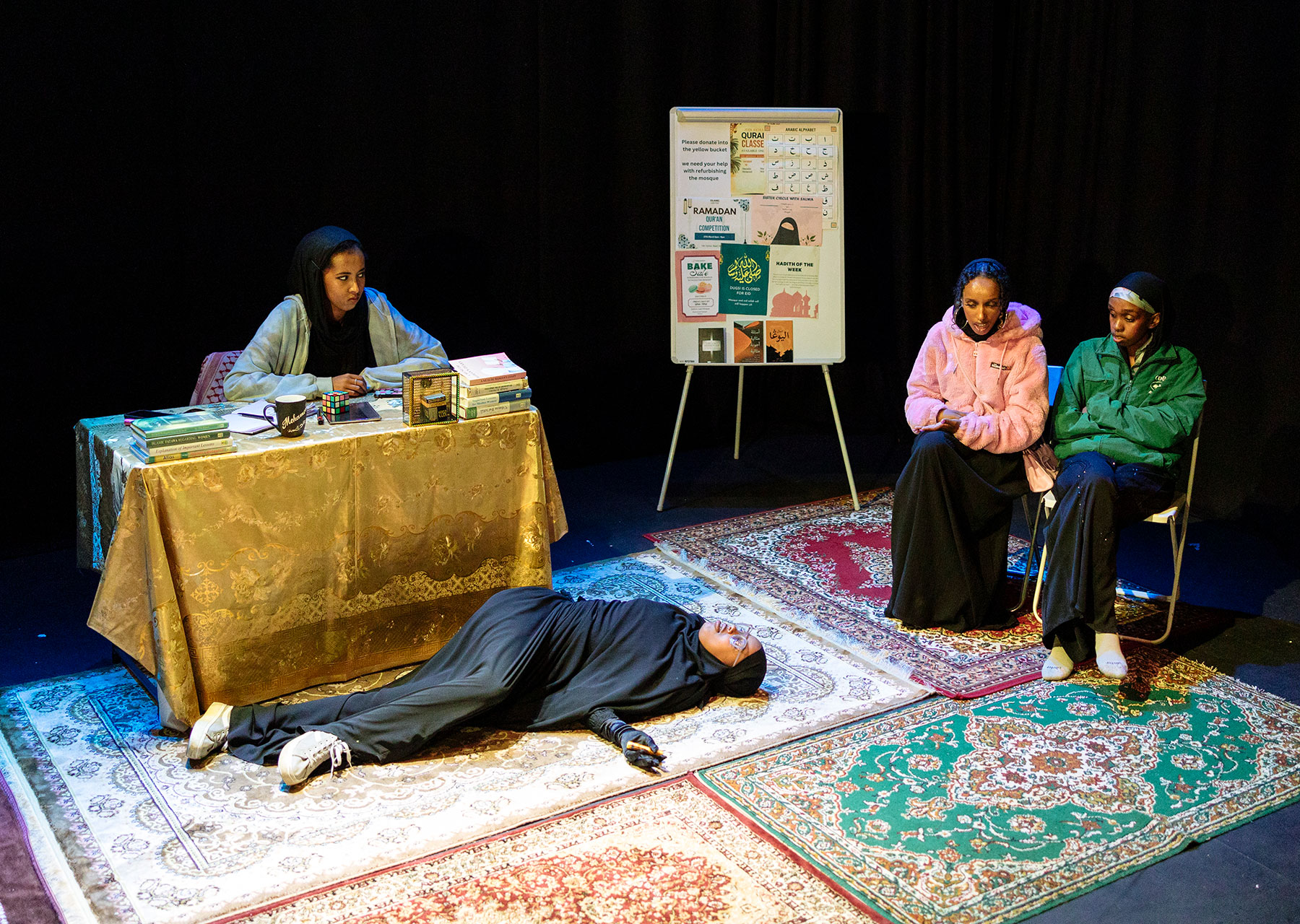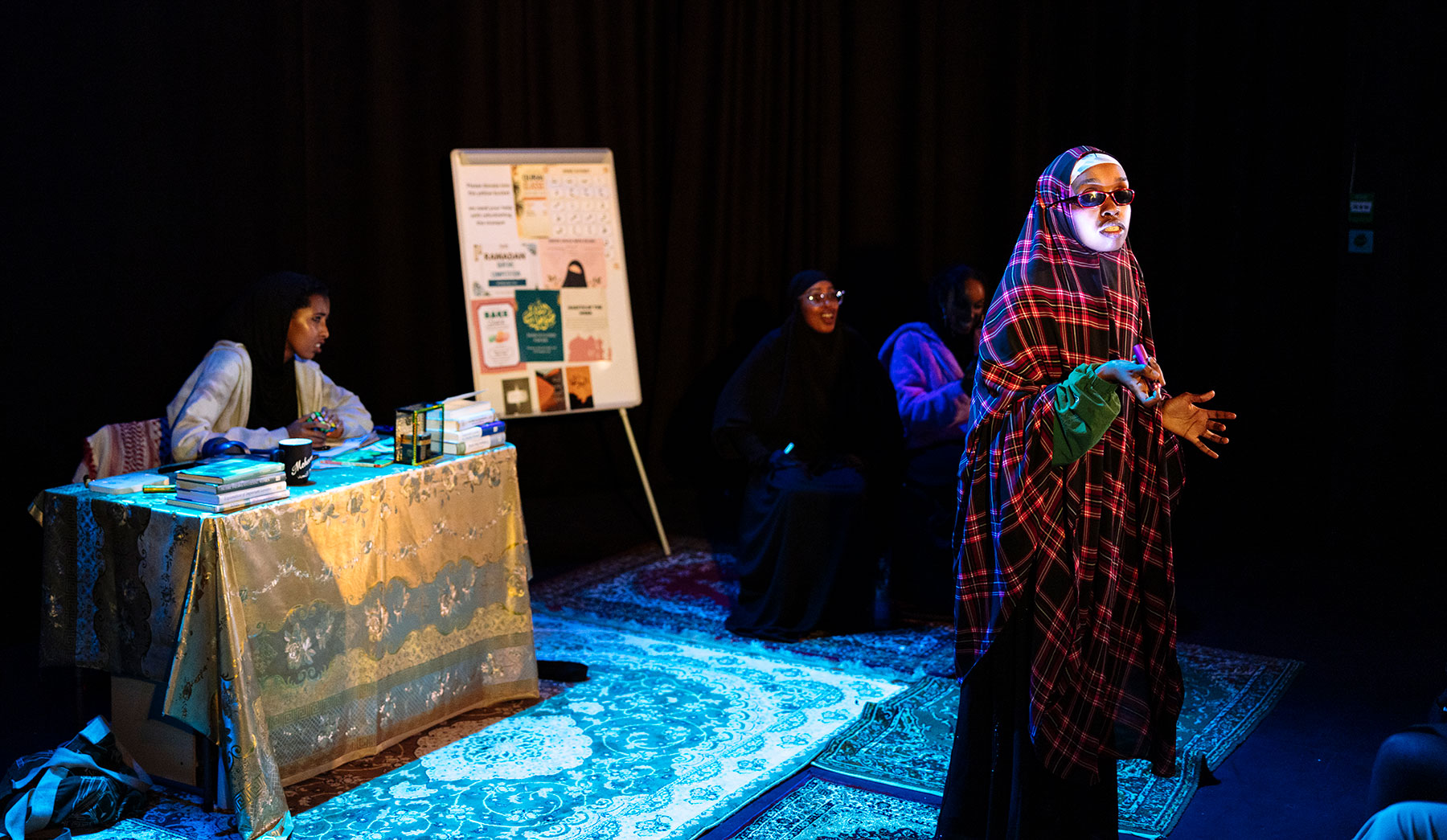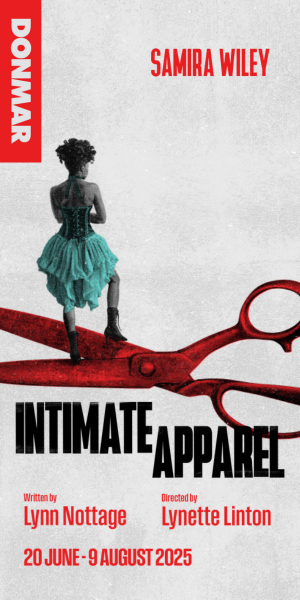
The concept of ‘stakes’ in theatre is an elusive one. As in life, their form, apparent importance, as well as the threat they represent, is contextual. Whether drama, comedy, tragedy, suspense or satire, these dramatic hooks (i.e. an audience’s reason to stay/ care) can often shift throughout a play.
Furthermore, the audience’s perspective can – and probably should – be open to change throughout the piece. Of course, the ‘stakes’ can differ in tone, depth and expression, depending on the type of play, but are generally indicated – if not explicitly expressed – as early as possible; often before the narrative context is announced.
Sabrina Ali’s play, however, goes a slightly different route. Taking its inspiration from the ‘80s Hollywood film The Breakfast Club, the play is set within a Mosque, in Tooting S.E. London. It tells the story of four 14-year-old female students who are each serving an extra-circular detention at the ‘Dugsi’ (Moslem School), for various reasons.
The tone is bright and breezy, as we meet each student in turn.
They are – at once – distinct personalities and story-telling archetypes.
‘Hani’ (Hadsan Mohamud) is a sharp-tongued introvert who has been away from the mosque, for reasons unknown Although speculation amongst her peers ranges from drug-trafficking to child-bearing, she retains her mystery… almost until the end.
‘Munira’ (Sabrina Ali) is the extrovert and class-joker.
‘Yasmin’ (Faduma Issa) is the make-up wearing ‘social butterfly’ with (supposedly) one foot in the secular world.
‘Salma’ (Susu Ahmed) is the ‘goody two-shoes’; always striving for academic excellence, and looking for teacher’s approval.
All of the young ladies hold secrets of varying import; their eventual sharing creating a stronger bond between them.The performances are uniformly appealing – the dialogue seemingly reminiscent of relatively well-behaved, 14-year old Muslim girls.
While interesting to see dramatisations of a culture I have no experience of, I cannot help but say this production felt a little safe. It’s almost as if the writing felt a little too much reverence for John Hughes’ 1985 movie, and the production felt slightly too much subservience to the Muslim tradition/ community.

Underneath the good-natured and polite ‘banter’, I felt there was an intriguing and challenging story (or several) about the conflicts a young dyslexic Muslim girl faces. Or those that a feisty, fun-loving London/ Somali girl faces as she presses her unadorned face against the ‘glass panel’; sadly watching the world go by. Or the Muslim girl that gets abducted – at her own family’s behest – in order to become more ‘devout’ and obedient within the traditional and patriarchal confines of Islam.
Instead, we have to imagine the rest of the stories, and the impact they must have – not only on the young girls in question, but on their families and the wider community. This production – slight as it is – represents a start or, at least, an intriguing sign-post on the way to further dramatic instalments.
The set is functionally designed; the many rugs seeming appropriate and well-observed. The lighting and sound are also simple and effective. Poppy Clifford’s direction was unfussy and allowed the young actors to express their inner adolescence.
At the show’s end, the four actors returned to the stage to read a well-worded statement in support of those innocents still suffering in Gaza. If one was needed, it was a reminder of deeper ‘stakes’.
Need to know: Dugsi Dayz plays at the Royal Court until 18 May 2024


























